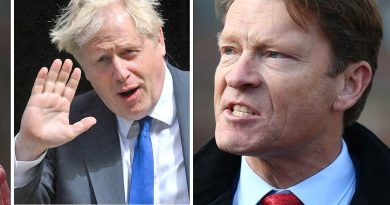The inquiry into Emergent and its troubled Maryland vaccine plant is expanded.
Congressional investigators are expanding their inquiry of Emergent BioSolutions, the operator of a troubled Maryland vaccine-making plant, to encompass the firm’s relationship with the two companies that hired it to produce their shots.
In letters dated Tuesday, two House panels asked the companies, AstraZeneca and Johnson & Johnson, to document their efforts to supervise production of their vaccines at Emergent’s factory and to produce all records related to their decisions to hire Emergent as a subcontractor.
The plant, in southeastern Baltimore, has been forced to throw out the equivalent of 75 million doses of Johnson & Johnson’s coronavirus vaccine because of suspected contamination. Deliveries of more than 100 million other doses of both vaccines have been delayed for weeks while regulators check them. The plant has been closed since mid-April while Emergent tries to meet the regulators’ demands to bring its manufacturing up to standard.
The congressional panels began a joint investigation of Emergent’s operations after The New York Times documented months of problems at the Baltimore plant, including a failure to properly disinfect equipment and to protect against viral and bacterial contamination. Among other matters, Democratic lawmakers are looking into whether the company leveraged its contacts with a top Trump administration official, Dr. Robert Kadlec, to win the business of vaccine production, and whether federal officials failed to oversee the firm’s work.
The investigation is being run by the Committee on Oversight and Reform, headed by Carolyn B. Maloney, a New York Democrat, and the Select Subcommittee on the Coronavirus Crisis, headed by James E. Clyburn, a Democrat from South Carolina.
“We are troubled by the impact Emergent’s manufacturing errors have had on the availability of coronavirus vaccine doses, as well as the potential effect on public perceptions regarding the safety and efficacy of these vaccines,” the lawmakers said in the nearly identical letters to the two vaccine developers. “We are also concerned about the circumstances that led AstraZeneca and Johnson & Johnson to sign contracts with Emergent,” they wrote.
At a congressional hearing last month, Emergent’s founder and executive chairman, Fuad El-Hibri, testified that the Trump administration had been well aware of the risks of relying on the Baltimore plant. “Everyone went into this with their eyes wide open, that this is a facility that had never manufactured a licensed product before,” he said.
Confidential audits obtained by The Times show that both Johnson & Johnson and AstraZeneca — as well as the division of the Department of Health and Human Services that oversees Emergent’s contract — all found deficiencies at the plant last summer. AstraZeneca’s audit said that the firm had not documented that it had mitigated “high risk” hazards of contamination. It also said that Emergent repeatedly loosened monitoring criteria so it appeared to meet them, but even then failed the tests.
Johnson & Johnson’s audit said that the firm’s “contamination control strategy is deficient” and that monitoring reports for bacteria or other contaminants were filed four to six months late. Emergent has said that it takes all such observations seriously and works expeditiously to address them.
The federal government agreed in May 2020 to pay Emergent $628 million, much of that to reserve production capacity at the Baltimore plant. It also signed billion-dollar contracts with Johnson & Johnson and AstraZeneca for the doses that Emergent was supposed to produce, and Emergent signed production contracts with the vaccine developers that were expanded in multiyear agreements in July 2020.
Federal officials have now stripped Emergent of its responsibility to manufacture AstraZeneca’s vaccine, lessening the firm’s payments by at least $18 million a month. The factory is expected to eventually reopen and resume manufacturing Johnson & Johnson’s vaccine.
Source: Read Full Article


